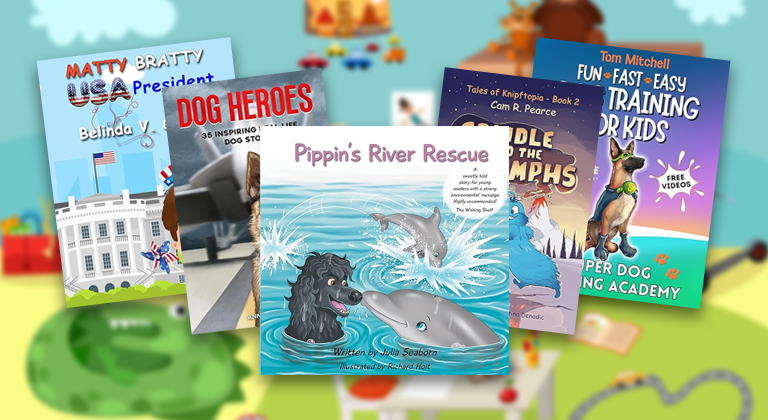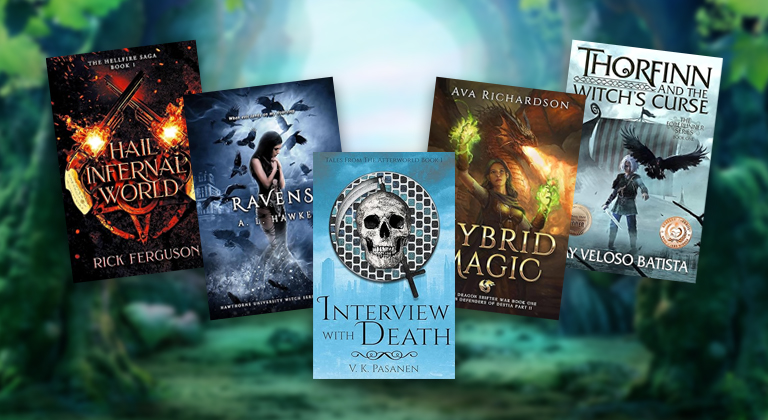Don’t Get Lost in Translation
Many authors would agree that it’s hard enough to write in the language you grew up speaking, let alone trying to do so in a second language that you learned later in life. And if your native language happens to be English, you’d probably wonder why you’d ever bother trying in the first place. But for writers whose native language is anything else, there are some definite benefits to writing and publishing in English – and some very obvious obstacles as well. Désirée Nordlund is an author who has taken this challenge head on, and we’re thrilled that she’s sharing tips and encouragement to other writers considering doing the same thing.
I am one of many authors who write in English though it is not my native language. I am also one of many who gets this choice questioned — a lot.
Why don’t you write in your native language?
Because 20% of the population of the world speak English, that is 1.5 billion people. Three hundred sixty million have English as their native language. If just 2% of those can consider reading a fantasy book, I still get more potential readers than my whole native country’s population. But that’s only one reason why.
I also like challenges. And it indeed is a challenge to write well in a language you do not speak on a daily basis with people. Yes, it would be easier to write in my native language, I cannot deny that. But I did not feel like it. It was not what I wanted. Not because of any financial reasons.
While some consider it a limitation to write in a language that is not your native tongue, I feel free when I write in English. And no one has the right to claim that feeling is wrong. If you want to write in English, you should. As another writer told me: ”If you had written lyrics in English no one would have questioned you.”
Over and over I am told by my fellow countrymen (who have not read my texts) that I can never find the right word and create the same shades and pinpoint a mood as I would have if I wrote in my native language. I do not believe that. Why? Because every reader experiences different things with the same choice of words. If I find the right word for the mood and the feeling, you will experience it differently — no matter the language.
The words matter, of course they do. So does grammar, and style, and story. All I’m saying is that there is no reason why you should no be able to pick the word that feels right for you. More about that later.
With plenty of years writing in the English language I would like to share some of my experiences with you in case you’re thinking of trying it yourself.
Get English-speaking friends.
When you do not write in your native language, it is likely that most of your beloved friends and family cannot or do not want to read what you write any longer.
You do need people you can trust with your writing and get feedback. Look around at forums, ask around, try and see what you get back. You do not need to meet them, or even like them, as long as they read what you write and give you honest feedback. Do not duck from the nasty ones. You need to know when your writing sucks. Because it will suck and you need to know, and you need to learn why.
Return for more from the harshest.
When you email and chat write at your best. Test sentences with them and use of words when you are not sure if they mean what you think.
Read a book about English grammar.
It is beneficial and can even be fun.
And while you are at it, read one about your native language, too. English probably handles it differently, and it is easier to get it right if you know the formulas for both.
In my native language, we sit ’in’ a sofa, while English-speaking people sit ’on’ a sofa. On the other hand, I am used to parking ’on’ a parking lot not ’in.’ There are a lot of those things you just have to learn. One is not more logical than the other.
Learn punctuation. I still tend to put commas where my teacher told me they should be. They go in other places in English.
While my native language takes pride in their long words and lengthy sentences, English is the opposite. It takes time to get in tune and not write English as you would with your native language. Take note of these things when you read English books.
Dare to put as much variety in your English as you do with your native language.
If you are scared to use the wrong word you limit yourself and your writing. Use a vast vocabulary, just check a few sources to see if the word means what you think it does.
Try to put diversity in your everyday writing too, to pick up a few words. Think about your choice of words when you write in a forum, an e-mail and a comment in social media. Take your time to find a synonym for the word you just used.
You will make mistakes. But that is how we learn. You will never be a splendid writer if you are afraid of the language in which you write. Accept the error, learn and move on. There is nothing else to it. You may get some laughs or insulting comments, but people will forget your mistake faster than you.
Metaphors are especially tricky, and you can probably not pick one from your own language and translate. Google is your best friend here.
It will take time, but you will move towards better English every day you try to improve.
Hire a proofreader and an editor.
Do not ever think you can proofread yourself or that software can do it for you. It is no fun to send your latest novel for reviews to get complaints about the grammar and get low scores. I have been there more than once. It is pure agony.
Not even native speakers write flawlessly. So you need a few human pairs of eyes to find errors. Even if you have started to think in English, you need a pro for your text.
Grammarly.com offers a lot of help, and I recommend it. Even try putting all your everyday writing through one of these online proof tools to learn. But do not listen to all its suggestions. Google certain phrases if you are uncertain, and trust your gut.
Then, when you think you have the perfect text, find a professional proofreader. At Upwork.com you can find people at reasonable prices. Just remember that you get what you pay for.
Make it clear in the description of the job that you want him or her to have an editor’s eye, too. You need someone to find the strange stuff. A strict proofreader will probably not do this.
Then when you get the proof back, you will likely have questions and might want to check things a second time. A sentence or two might have gained a new meaning, for instance, because its purpose was not clear. Make sure you have this need of Q&A in your deal.
When you hire a proofreader/editor be honest with what you have and what you expect and do not give a tight deadline. And tell that you are not native in English. You want their help, not someone feeling you tricked them.
And most of all, as long as you do what feels right for you, write in any language of your choice, no matter what anybody says.












How awesome – I love the perspective of writing in a different language. I think you’re a very talented person to be able to do it!